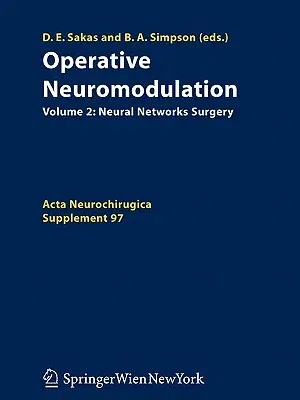Neuromodulation is a rapidly evolving multidisciplinary biomedical and
biotechnological field. The two volumes present the state-of-the-art in
established and emerging applications for pain, spasticity, movement
disorders, bladder and bowel dysfunction, cardiovascular disease,
epilepsy, psychiatric illness, impairment of hearing and vision, and
computational neuromodulation. Experts describe the neural networks
involved and the appropriate surgical approaches, provide clinical
guidelines, technical descriptions of implanted devices, proposals for
refinements and personal views on future prospects of the field. The
immense therapeutic potential is highlighted which arises from the close
collaboration of biomedical scientists and biotechnological engineers in
this area and signifies the transition from the conventional "resective"
surgery to functional neuroprosthetic surgery (Vol. I) and neural
networks surgery (Vol. II) which uses neuro-engineering to improve
impaired neural function.
Vol. 2 describes the techniques and procedures applied by direct a)
contact with the central nervous system or cranial nerves, in order to
modulate the function of neural networks as in the case of motor cortext
stimulation for pain or vagus nerve stimulation for epilepsy, or b) in
deeply located structures inside the nervous system, in order to alter
the function on specific networks as in the case of deep brain
stimulation for Parkinson's disease.

